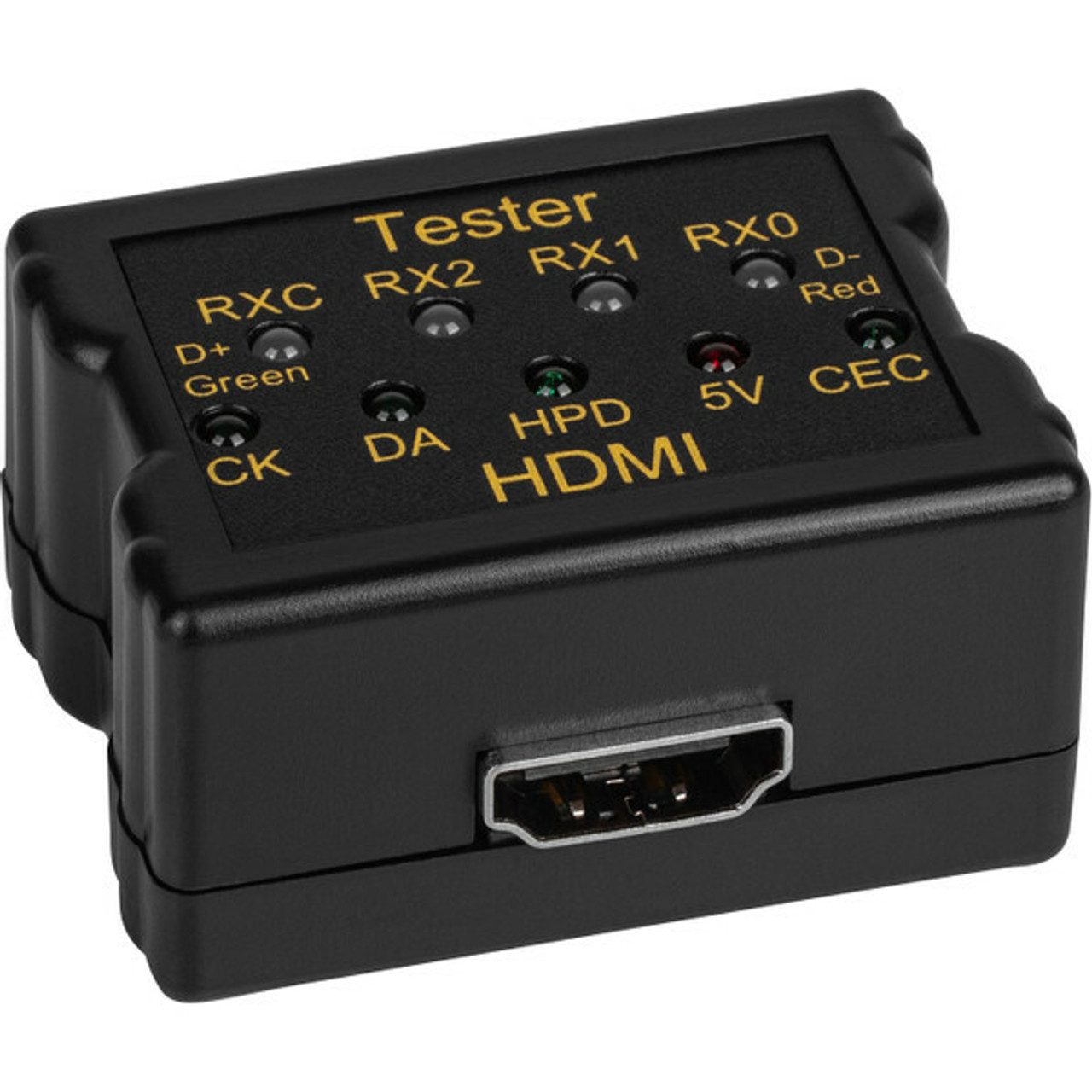HDMI Cable Testers
HDTV Supply's WolfPack HDMI Cable Testers are specialized devices used to test and diagnose HDMI cables.
It's important to note that not all HDMI cable testers will have every feature listed above. The specific features can vary depending on the model and manufacturer of the tester. When selecting an HDMI cable tester, consider the features that are most relevant to your testing requirements and ensure compatibility with the HDMI versions and connector types you need to test.
Here are some common features found our HDMI Cable Testers:
- Continuity Testing: HDMI cable testers can check the continuity of all the pins and wires in an HDMI cable. This ensures that there are no breaks, shorts, or open circuits in the cable, which can cause signal loss or degradation.
- Signal Testing: These testers can verify the transmission of HDMI signals through the cable. They can detect issues such as signal loss, pixelation, color distortion, or audio dropout, helping you identify faulty cables.
- Length Measurement: HDMI cable testers can measure the length of an HDMI cable accurately. This feature is useful for determining cable length during installations or troubleshooting signal loss over long cable runs.
- Signal Quality Analysis: Some advanced HDMI cable testers can analyze the quality of the HDMI signal transmitted through the cable. They can provide measurements such as signal strength, bandwidth, or error rates, helping you assess the cable's performance.
- HDMI Version Compatibility: HDMI cable testers can often identify the HDMI version supported by the cable. This information is crucial for ensuring compatibility with devices that require specific HDMI versions.
- Connector Type Identification: HDMI cable testers can determine the type of HDMI connectors (e.g., standard HDMI, mini HDMI, micro HDMI) present on the cable. This feature helps identify the correct connectors for specific devices or applications.
- Display and User Interface: HDMI cable testers typically have built-in displays or interfaces for easy viewing of test results. They may include intuitive menus, buttons, or touchscreens for convenient operation and navigation through test options.
- Power Source: HDMI cable testers can be powered by various means, such as built-in batteries, AC adapters, or USB connections. Consider the power source options that best suit your testing needs and preferences.
- Compact and Portable Design: HDMI cable testers are often designed to be portable and lightweight, allowing for easy transportation and on-site testing. They may come in a handheld form factor, making them convenient for fieldwork.


